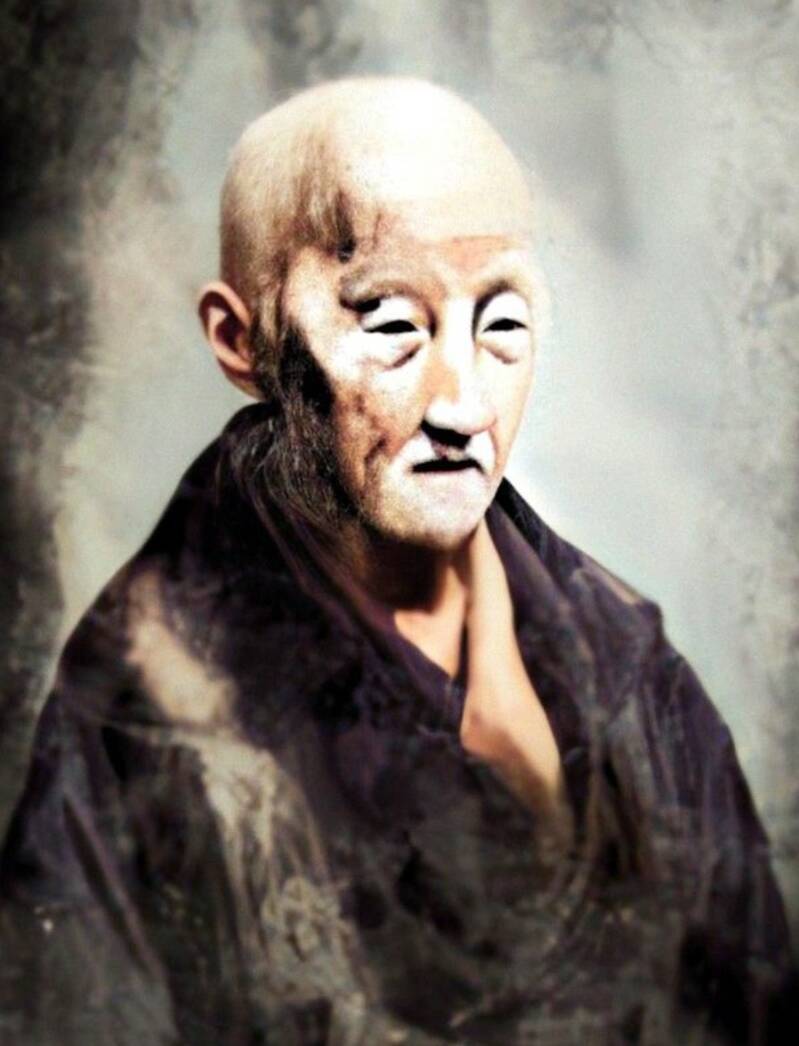25. Otagaki Rengetsu
RENGETSU, Otagaki Rengetsu
大田垣蓮月
One of the most inerrant names in the history of Kyoto pottery, is that of Otagaki Rengetsu. She was not only a potter, but also a calligrapher and painter, and above all a poet of wakas, a classical poetic form of 31 syllables. In Japan, she is considered one of the greatest poets of the 19th century. In her pottery, she sought not perfection but purity and authenticity, with her engraved poetry also forming an important and integral part of the object itself. Rengetsu pottery (蓮月焼, Rengetsu-yaki) is the name for the type of pottery produced by her, but continued to be produced long after her death,especially in Okazaki, a district near the eastern mountains of Kyoto, where she lived and worked for much of her life.
Otagaki Rengetsu was born on 8 January 1791 in Kyoto and was given the name Nobu. Her mother is said to have been a geisha and her father a high samurai, Todo Yoshikiyo. Her mother abandoned Nobu when she was only a few weeks old. At her father's request, she was adopted by Yamazaki Teruhisa, a samurai of the Otagaki clan who worked as a servant at the Chionin temple where her real father Yoshikyo also stayed. She learned to write poetry, dance and sew as a woman was supposed to do in those days, but was also proficient in martial arts, horse riding and sword fighting. Her life as a young adult was marked by many personal tragedies with the loss of two husbands and five children when she was only 31. She then decided to shave off her hair and take a vow as a Buddhist monk. She took the name Rengetsu (Lotus Moon) and lived with her stepfather near the Chion'in temple. Only after his death in 1832 did Rengetsu start making her lotus-shaped pottery, which she sold to earn a living. With her unique combination of pottery, calligraphy and poetry, Rengetsu achieved great fame far beyond the borders of Kyōto during her lifetime. She earned a lot of money, but also gave away almost everything and lived her life in very modest circumstances. Rengetsu continued to work into old age. She died in 1875, aged 85. Rengetsu's grave still stands under the cherry trees in Kyoto's Kotani cemetery.

Otagaki Rengetsu ca. 1870

Incised signature of Rengetsu

a lotus shaped teacup (kintsugi repaired) with an incised poem:
つまごとの
律のしらべに
かよひきて
こゑおもしろき
軒の松風
Tsuma goto no
richi no shirabe ni
kayoi ki te
koe omoshiroki
noki n
Reaching
for the right notes
lovely sounds from a zither
weave into the pine wind
along my eaves.
Otagaki Rengetsu's work is of singular beauty. It does not strive for perfection, but is rustic and imbued with her presence. The marks of her fingers kneading the clay are still visible, her beautiful poems, carved with a nail or written with a brush, encourage contemplation and create a personal connection between the maker and the user. This is why the work was greatly admired by tea masters and became popular with many others, from ordinary villagers to high-ranking nobles.
As is often the case with the work of celebrities, Rengetsu's work was deliberately copied (which is not easy because of her difficult to forge calligraphic handwriting) but mostly imitated as a tribute to her art and personality. By inspiring many artists with her works, some potter friends soon began to reproduce her works under her guidance. Such well-known potters are for example Issō (dates unknown) and Kuroda Kōryō (1823-1895). Many of the tea ware on the market today were actually made by others and calligraphed at their request by Rengetsu to help her fellow potters. Much is known about the fascinating life of Otagakin Rengetsu and her extraordinary work. The Rengetsu Foundation aims to make her works of art, poetry, life story and teachings more accessible to those who are attracted to her spirit. Her nearly 1,000 poems have been translated into Japanese Roman script and English, and offer a deep insight into her beautiful mind. See: http://rengetsu.org/
A sake bottle with poem


日はくれぬ - やどかせ山の - ほととぎす - 明日は都へ - つれて出まし
Hi wa kure nu yado Kaseyama no hototogisu asu wa miyako e tsure te ide mashi.
A kogo with painted waka poem:
Before sunset
at my mountain hut
a little cuckoo chirps―
Ah, to have her company
tomorrow, on my way to Miyako.

A teapot with incised poem


Maak jouw eigen website met JouwWeb